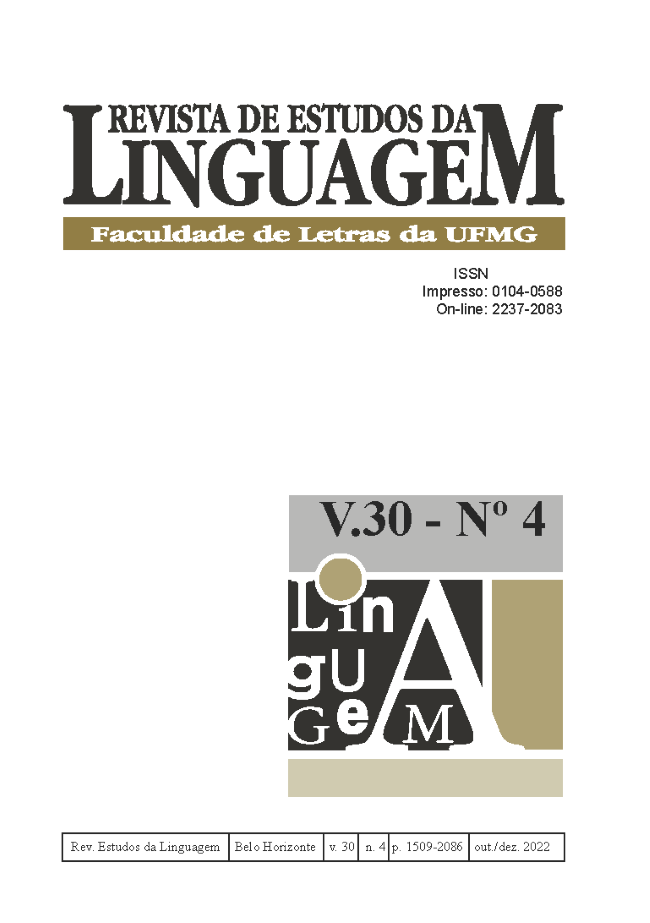Resistência do dativo de primeira pessoa na batalha (quase) perdida dos clíticos pronominais do português brasileiro
DOI:
https://doi.org/10.17851/2237-2083.30.4.1621-1657Palabras clave:
clítico dativo, cisão pronominal, aplicativo, oblíquoResumen
Este estudo investiga a cisão pronominal na expressão dos dativos no português brasileiro (PB), a qual consiste na presença dos clíticos de 1a e 2a pessoas me e te, em oposição aos pronominais tônicos ele(s), ela(s), introduzidos por a e para, em decorrência da perda dos clíticos dativos lhe(s). Em termos descritivos, focalizamos a resistência do clítico me, na sua ampla distribuição sintática em predicados ditransitivos e monotransitivos, com verbos inergativos e inacusativos, entre eles, os verbos psicológicos, e em estruturas com o dativo ético. Assumindo uma abordagem teórica da cisão com base na hipótese de um traço interpretável de pessoa nos núcleos funcionais aplicativos (cf. TORRES MORAIS; SALLES, 2010, 2019), propomos que opções microparamétrica nos valores do traço pessoa, de um sistema bivalente, para um sistema monovalente, causam que as propriedades sintáticas e semânticas do clítico dativo me sejam unificadas como núcleo Aplicativo Alto, nos termos da tipologia proposta em Pylkkänen (2002, 2008).





